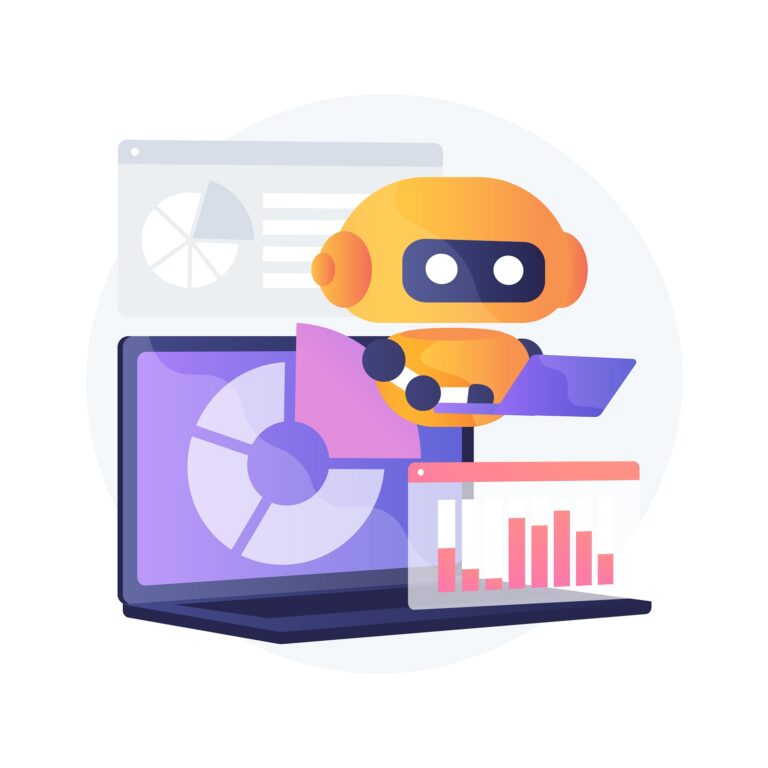Decoding the Role of AI in Business Automation
Artificial Intelligence has been a buzzword in the tech world for some time now. Its influence stretches far and wide across various sectors, reshaping how we live, work, and interact. One field experiencing a transformative impact from AI is business automation.
In this article, we aim to unravel the role of AI in business automation. We’ll discuss its applications, benefits, and the future implications of AI-powered automation in the business landscape.
What is Business Automation?
Before we delve into the intricacies of AI and its role in business automation, it’s crucial to understand what business automation is. In simple terms, business automation involves using technology to automate complex business processes. It helps to eliminate manual, repetitive tasks, increase efficiency, and reduce errors.
The Advent of AI in Business Automation
Artificial Intelligence takes business automation to a new level. AI is a multidimensional technology capable of mimicking human intelligence. This includes learning from experiences, understanding complex content, recognizing patterns, and making independent decisions.
AI’s ability to learn and adapt makes it a valuable tool for business automation. It not only automates routine tasks but also continually improves and optimizes business processes over time.
AI-Driven Automation in Business: Key Applications
1. Customer Service
The implementation of AI in customer service has reshaped how businesses interact with their customers. AI-powered chatbots and virtual assistants are now handling customer inquiries, resolving issues, and providing round-the-clock support. These tools can engage in human-like conversation, learning and improving with each interaction.
2. Sales and Marketing
In sales and marketing, AI’s role is evident in its capacity to collect, analyze, and interpret vast amounts of consumer data. This helps businesses understand their customers better, predict consumer behavior, and personalize their marketing efforts. Additionally, AI can automate email campaigns, social media posts, and ad placements, ensuring the right message reaches the right audience at the right time.
3. Supply Chain Management
AI has significantly enhanced supply chain management by optimizing logistics, improving inventory management, and enabling predictive analytics. With AI, businesses can anticipate demand, optimize delivery routes, and prevent overstocking or understocking of products.
4. Human Resources
AI-powered automation has found its way into the human resources sector as well. AI can streamline the recruitment process by automating resume screening, scheduling interviews, and even assessing candidate suitability through predictive analysis.
Benefits of AI in Business Automation
Business automation through AI comes with numerous benefits:
Efficiency: AI can perform tasks more quickly and accurately than a human, leading to increased productivity and efficiency.
Cost Savings: By automating routine tasks, businesses can reduce the need for manual labor, leading to significant cost savings in the long run.
Improved Decision Making: AI’s data processing and analysis capabilities enable businesses to make data-driven decisions.
Enhanced Customer Experience: AI personalizes customer interaction, offering a customer experience that is more tailored and responsive.
Scalability: As AI systems learn and improve, they can handle more complex tasks and larger volumes of work, allowing businesses to scale operations without proportionate increases in cost or resources.
The Future of AI in Business Automation
The role of AI in business automation is expected to continue expanding. As technology evolves, we can anticipate AI systems handling more complex tasks, making more accurate predictions, and improving their ability to understand and interact with humans.
AI is also likely to become more accessible and affordable. This will enable small and medium businesses to leverage AI for automation, leveling the playing field with larger corporations.
Moreover, as businesses become more familiar with AI, there is likely to be an increased emphasis on ethics and regulation to ensure the responsible use of AI.
Conclusion
In a world that’s constantly evolving, businesses must keep up with technological advancements to stay competitive. AI’s role in business automation has already proven to be a game-changer, and it’s only going to get bigger and more influential.
Understanding AI and its capabilities is the first step to leverage its power effectively. As we continue to decode the role of AI in business automation, one thing is clear: AI is not just a buzzword – it’s a revolutionary force transforming the business landscape.







